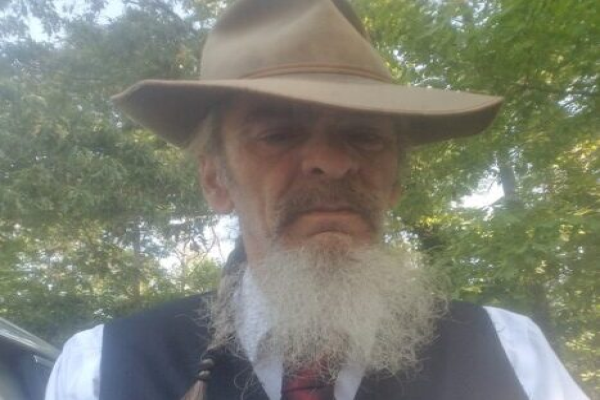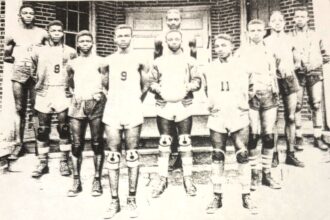When I was a little kid, I watched Sesame Street. If you are of a certain age, I’d bet ten to one odds on a nickel you remember the theme song, where the kids were asking how to get to that fun, magical place.
Bert and Ernie were like friends; Big Bird was kind of a dork, but he was a nice dork, a someone you could count on in a pinch to do what he could to help. Mr. Snuffleupugus may have had his roots in the hippie pot culture, but by the time he got to the Street he was wholesome and appealing; every little kid had an imaginary friend, and many of those who didn’t understood what it was like not to be seen. Unsurprisingly, even fifty-plus years ago I identified with Oscar the Grouch.
They went by the wayside of course as I grew older. But even now I can remember how the adults on the program, silly as they were, came off as sincere.
I credit Sesame Street with easing some of the racial tensions of the early post-segregation period,` because the black characters were just people, like everyone else. Same for the Latinos. They were just people who were helping us learn our ABCs and 123s, as well as why we should be nice to each other. They helped my generation and maybe part of the next one learn to ignore skin color and look at the individual. Without preaching or making a big deal out of it, Sesame Street helped close a rift, starting with kids. Sadly, those who profit from discord have successfully reopened some of that divide in America today.
As a target for bullies, I took some hope from those simple little sketches about being a nice person, although I don’t think the Sesame Street gang would have approved of how I finally dealt with my tormentors. The Sesame Street folks didn’t always have perfect solution. But black lunchboxes are a column for another day.
I’m not sure when Sesame Street became a tool of political correctness – or for that matter, why – but the episode or two I’ve seen in recent years weren’t about education as much as they were indoctrination.
We watched a few other shows on UNC Public Television when I was a kid and later, but not that many. It was often the only place Miss Lois could find some of the classical music, operas and Broadway that she loved. The Old Man watched one or two programs here and there, usually commentary or history. I do remember once when the late Sen. Jesse Helms called my father home one evening to say, “Tom, you have got to watch this So-and-So tonight!” I disremember what the program was about, but neither Uncle Jesse not my father approved. They did talk about it afterward though, discussing some of the finer points.
Years later, I was a fan of a public radio station that had a Sunday afternoon blues program. Some of the songs hadn’t been played over the air in decades. The program was a “pay to play” situation, where the host bought airtime and sold sponsorships; while I am sure he rarely even paid his bills, he did help expose people to music he loved that might otherwise have been lost.
Later I remember my mother singing along with Les Miserables, Phantom of the Opera or others whenever public television had a fund drive, and more often than not she would break out her checkbook and send them a little pledge – but only if they featured performances she liked.
Once upon a time, public broadcasting offered programming one might not find elsewhere. Today, however, there’s a better than average chance that any of a dozen streaming channels have the same program (without the annoying hosts breaking into a song to beg for money).
My biggest problem has always been with their news programming. The tone is always condescending, or at least a bit snobbish; I don’t mind listening to dissenting opinions, but when those dissenting opinions are delivered with a superiority complex, I change the channel.
Too many of the folks I’ve heard and seen on my rare stops on public radio and television dials are completely detached from reality, such as the one who said North Carolina needs more solar panels than farms, since “other states” are better equipped to produce crops. The same person said rural folks need to move into cities so they can access public transportation and save the planet.
I’m surprised many of the folks in public broadcasting don’t have back and neck problems from looking down their noses on people who dare question whatever cause du jour has been adopted by the nanny state.
There’s a lot of handwringing and hollering right now about federal funding being yanked from public broadcasting. It’s laughable when they sit there and say “rural residents won’t be able to get emergency alerts” and such foolishness as that. I have never known anyone who counted on public radio or television for their primary weather information, and I’ve lived in a few places that were fairly backwoods.
The government does not need to be in the news business; nor does the government need to be in the business of social engineering. Anyone who truly thinks public broadcasting news can be completely objective is obviously naïve or lying, since I doubt sincerely that tax-funded media would treat a powerful congressman on a budget subcommittee the same as any average Joe who didn’t want his name in the news.
State run media never turns out well in what is supposed to be a free country. Even in a free country, for the government to compete with private business is immoral, since government rarely has to answer to its shareholders or customers.
In today’s media world, there’s no news for public broadcasting to provide news. Period.
Years ago I watched what was supposed to be a program on hunting on a PBS station (I didn’t have cable back then) and the show was filled with inaccuracies and judicious editing designed to make the viewer hate hunters. Yep. Tax dollars paid for that, and the wildlife regulatory agency of at least one state helped.
There is a place for educational and artistic programming that does not promote an agenda. It was unconscionable to add even passive gay couple to the cast of Sesame Street, as they did in 2021, simply to satisfy the special interest groups. The program was originally targeted at kids ages two to five, then up to age seven or so. Sexual orientation has no place in a program for little kids, even if it’s “just” a little girl with two dads.
For the record, I never saw Bert and Ernie as being a gay couple, anymore than I saw Abraham Lincoln being homosexual for sleeping in a bed with another man (as another NPR person suggested).
We need the programs with classical music, the docuseries by filmmakers like Ken Burns, the nature and history programs that present the facts in an engaging manner. We need the Sunday afternoon blues programs and the Sunday night bluegrass jams brought to you by devotees of those genre.
What we don’t need is government-funded propaganda machine whose very own former CEO admitted that government funded news media was a bad idea.
I say let the market decide. If folks want what’s offered by public radio and TV, they’ll do like my mother did, and support the programming they enjoy.
Maybe the free market can give public broadcasting some instructions on how to get back to Sesame Street.







